We do not condemn it because it is a crime, but it is a crime because we condemn it.
EMILE DURKHEIMThe term suicide is applied to all cases of death resulting directly or indirectly from a positive or negative act of the victim himself, which he knows will produce this result
More Emile Durkheim Quotes
-







-





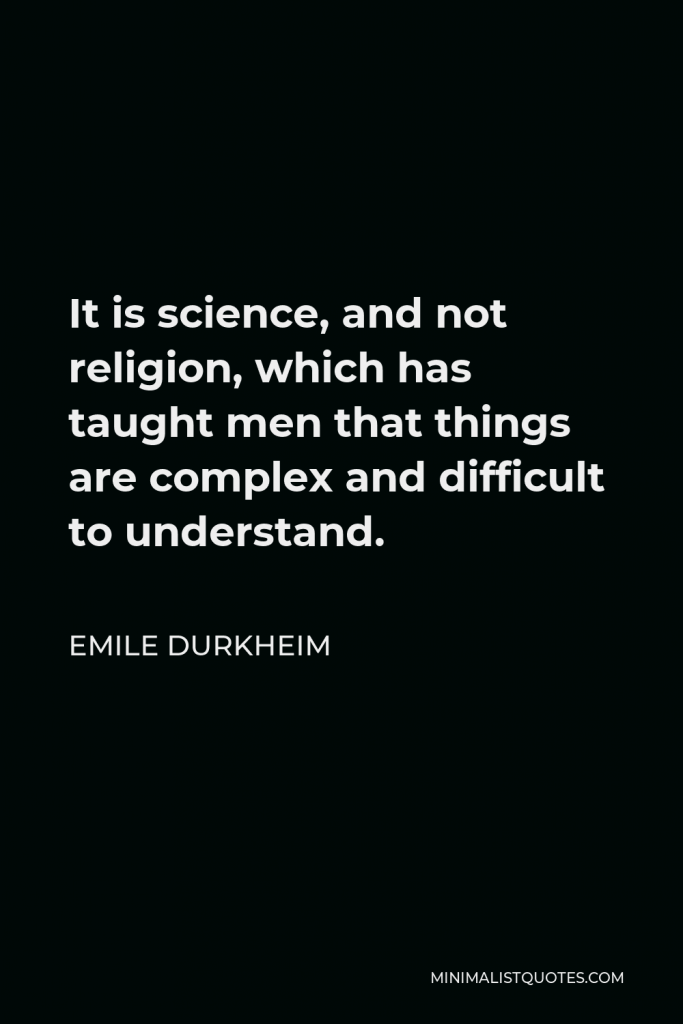

It is science, and not religion, which has taught men that things are complex and difficult to understand.
EMILE DURKHEIM -





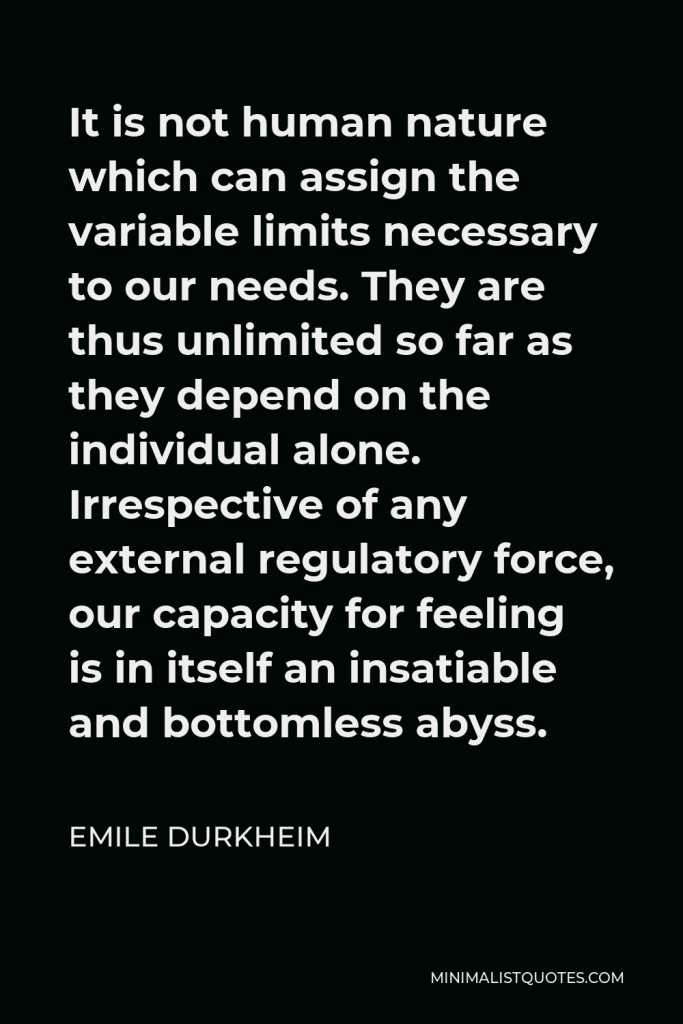

It is not human nature which can assign the variable limits necessary to our needs. They are thus unlimited so far as they depend on the individual alone. Irrespective of any external regulatory force, our capacity for feeling is in itself an insatiable and bottomless abyss.
EMILE DURKHEIM -





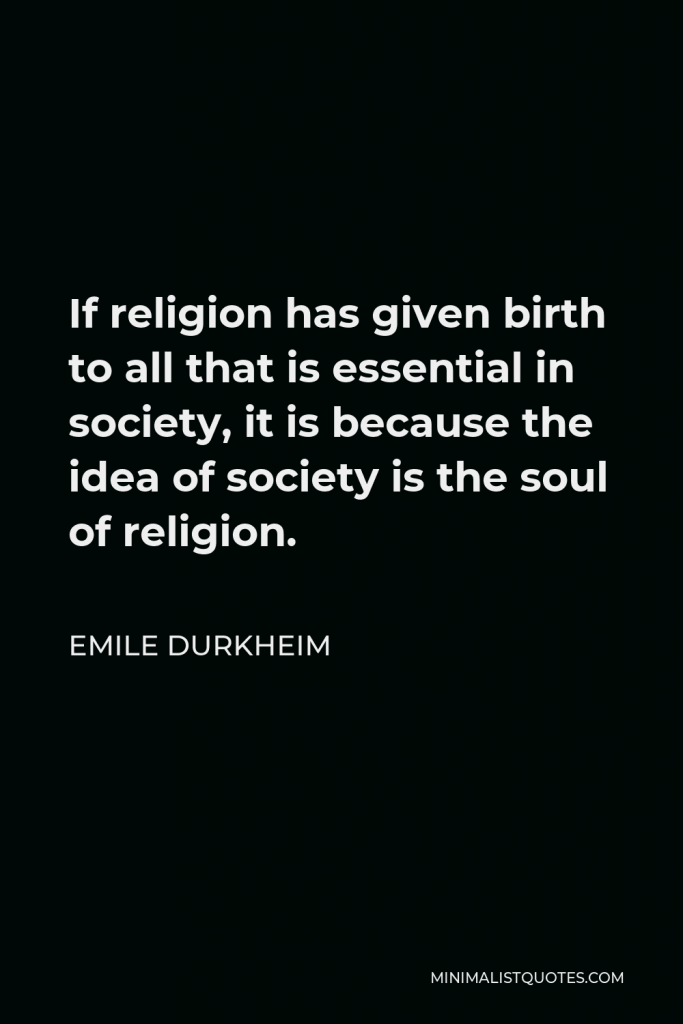

If religion has given birth to all that is essential in society, it is because the idea of society is the soul of religion.
EMILE DURKHEIM -







An act cannot be defined by the end sought by the actor, for an identical system of behaviour may be adjustable to too many different ends without altering its nature.
EMILE DURKHEIM -







There is no sociology worthy of the name which does not possess a historical character.
EMILE DURKHEIM -







A monomaniac is a sick person whose mentality is perfectly healthy in all respects but one; he has a single flaw, clearly localized. At times, for example, he has an unreasonable and absurd desire to drink or steal or use abusive language; but all his other acts and all his other thoughts are strictly correct.
EMILE DURKHEIM -





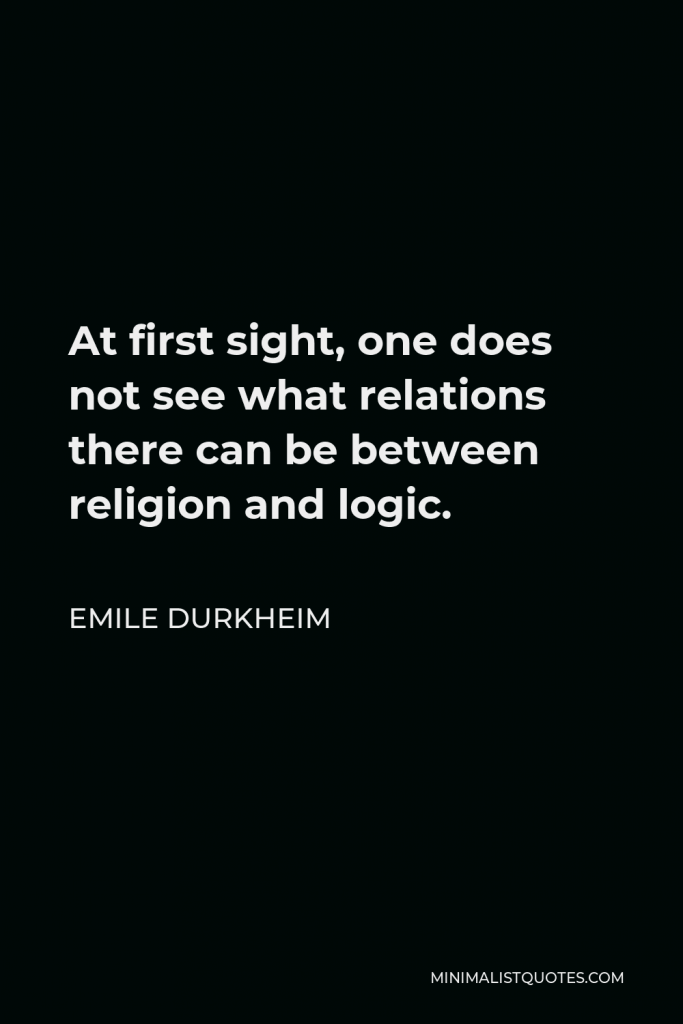

At first sight, one does not see what relations there can be between religion and logic.
EMILE DURKHEIM -





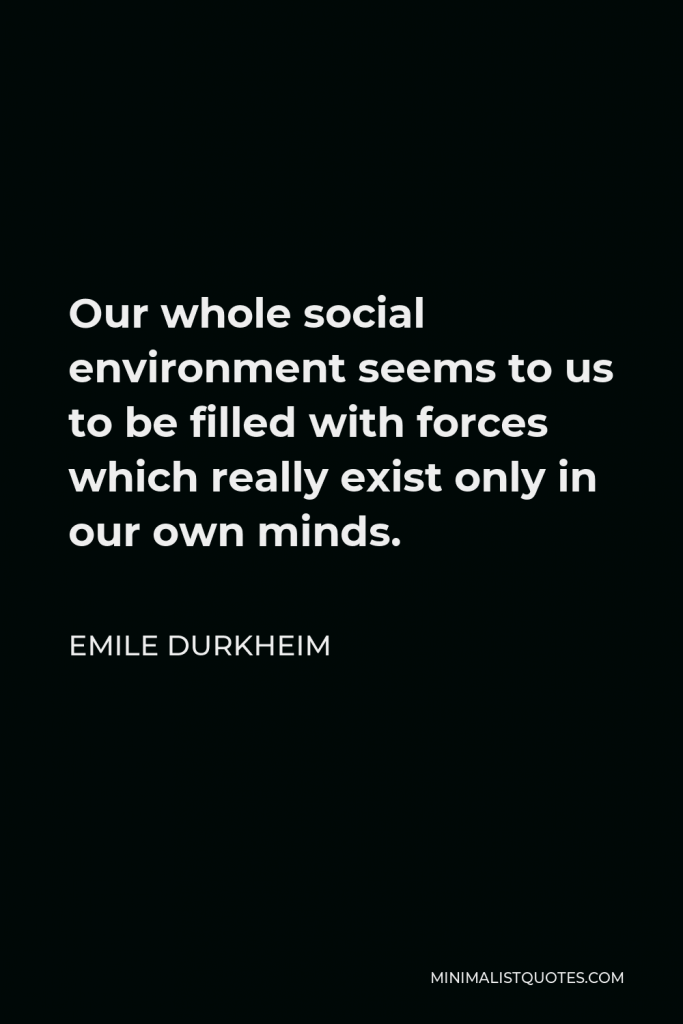

Our whole social environment seems to us to be filled with forces which really exist only in our own minds.
EMILE DURKHEIM -







The wise man, knowing how to enjoy achieved results without having constantly to replace them with others, finds in them an attachment to life in the hour of difficulty.
EMILE DURKHEIM -





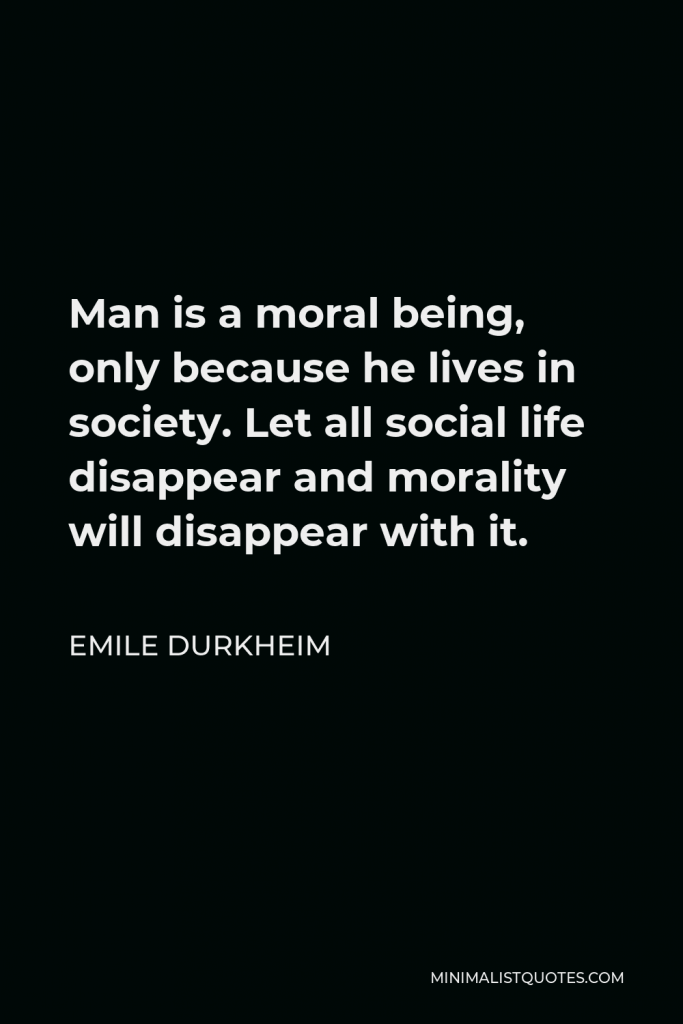

Man is a moral being, only because he lives in society. Let all social life disappear and morality will disappear with it.
EMILE DURKHEIM -







One does not advance when one walks toward no goal, or – which is the same thing – when his goal is infinity.
EMILE DURKHEIM -





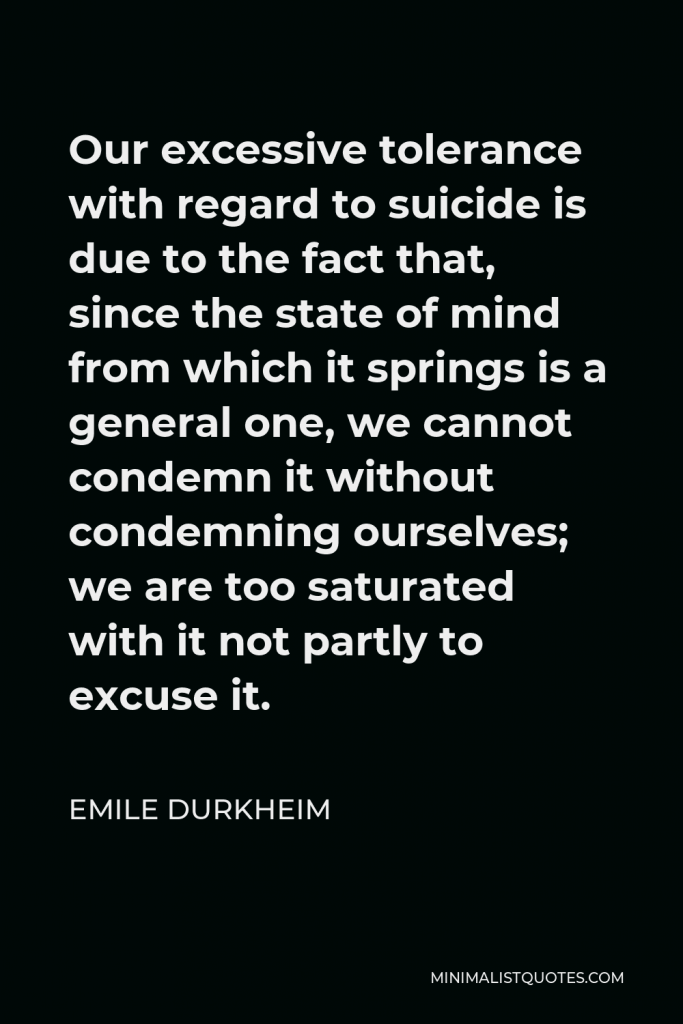

Our excessive tolerance with regard to suicide is due to the fact that, since the state of mind from which it springs is a general one, we cannot condemn it without condemning ourselves; we are too saturated with it not partly to excuse it.
EMILE DURKHEIM -







The Christian conceives of his abode on Earth in no more delightful colors than the Jainist sectarian. He sees in it only a time of sad trial; he also thinks that his true country is not of this world.
EMILE DURKHEIM -







Maniacal suicide. -This is due to hallucinations or delirious conceptions. The patient kills himself to escape from an imaginary danger or disgrace, or to obey a mysterious order from on high, etc.
EMILE DURKHEIM -





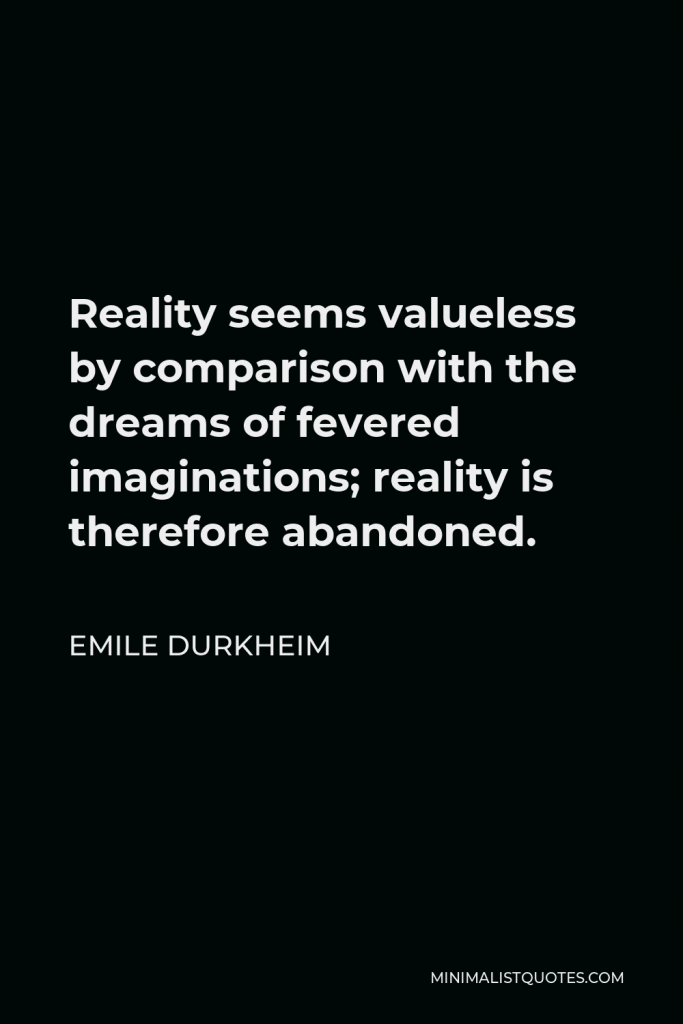

Reality seems valueless by comparison with the dreams of fevered imaginations; reality is therefore abandoned.
EMILE DURKHEIM







